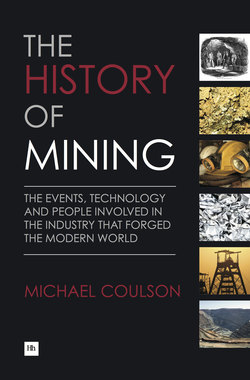Читать книгу The History of Mining - Michael Coulson - Страница 45
На сайте Литреса книга снята с продажи.
John Winthrop Jr. (1606-1676)
ОглавлениеJohn Winthrop Jr. was born in Suffolk in England, the son of John Winthrop who eventually became the Governor of Massachusetts. Winthrop Jr. was educated at Bury St Edmond’s Grammar School and then at Trinity College, Dublin. On leaving Dublin he studied law in London for a short time in 1624, but then became something of an adventurer in the 1620s, joining the Duke of Buckingham’s unsuccessful expedition to release the beleaguered Huguenots in La Rochelle on France’s Atlantic coast. Thereafter he travelled around the Mediterranean.
On his return to England in 1629 he found his father had been appointed Governor of Massachusetts in the New World. Winthrop Jr. remained in England to look after his stepmother and siblings, and his father’s business affairs. In 1631 he followed his father to America with the family and founded the town of Ipswich in Massachusetts, but was then encouraged by his father and interests in London to take up the position of Governor of Connecticut which led to his return to London to obtain patents from the Crown for the establishment of the colony of Connecticut.
He succeeded in obtaining the Crown’s permission to establish the colony and on his return to America he became excited by the potential for minerals in both Connecticut and Massachusetts. He spent time in Massachusetts in the late 1630s persuading the primarily agrarian inhabitants of the colony to take an interest in developing the mineral potential of the area. Winthrop Jr. established two ironworks in Massachusetts, at Braintree in 1644, the first in the American Colonies, and then a bigger one at Lynn, both using locally mined bog iron. He then went back to Connecticut and continued his new role as a mining and metals entrepreneur building ironworks at North Branford. He also established a granite quarry on his land at Waterford on the Connecticut coast. Winthrop Jr. was known as America’s first commercial iron maker, and due to his efforts Connecticut earned the title cradle of American mining.
But Winthrop Jr. was much more than a political figure and mining developer; he was a man of science also and very interested in alchemy. This interest meant he was curiously in demand over matters of witchcraft, something of an obsession in colonial New England. In the latter years of his life he spent a lot of time fulfilling the duties of Governor of Connecticut and in 1675 he became one of the Commissioners of the United Colonies of New England, which merged Massachusetts, Plymouth, Connecticut and New Haven. He was also elected a Fellow of the Royal Society in London and contributed a paper on maize, another area of his expertise as he owned and operated a grist mill in New London, Connecticut, where he had a monopoly over the milling of maize.
Winthrop Jr. married a cousin, Mary Fones, in 1631 and she accompanied him and the other Winthrops to Massachusetts in 1633. Unfortunately Mary and their baby daughter died in the following year. The tragedy temporarily saw him back in England where he met and married his second wife, Elizabeth Reade, in 1635. They had nine children, one of which, Fitz-John, followed father and grandfather as a colonial governor.
Winthrop Jr. was a man of many parts, being interested in science, medicine and astronomy. Indeed he acted as a physician in Connecticut for a number of years and on the astronomical side claimed the sighting of a fifth moon around Jupiter many years before it was confirmed through the work of others. He also carried out experiments to mine salt from the ocean by evaporation. He died in 1676 of a cold caught in Boston where he was attending the New England Convention.
The Winthrop family is one of the exclusive group of rich upper class Americans who trace their heritage back to the founding days of the American colonies and beyond that back to England and even the Normans. Today the rich founding families are often seen as outposts of American snobbery whose past is perhaps more glorious than their present. John Winthrop Jr., dedicated administrator and politician, mining entrepreneur and scientist, a man of brilliance, underlines the difficulties for his ancestors in living up to the family’s past glories.
